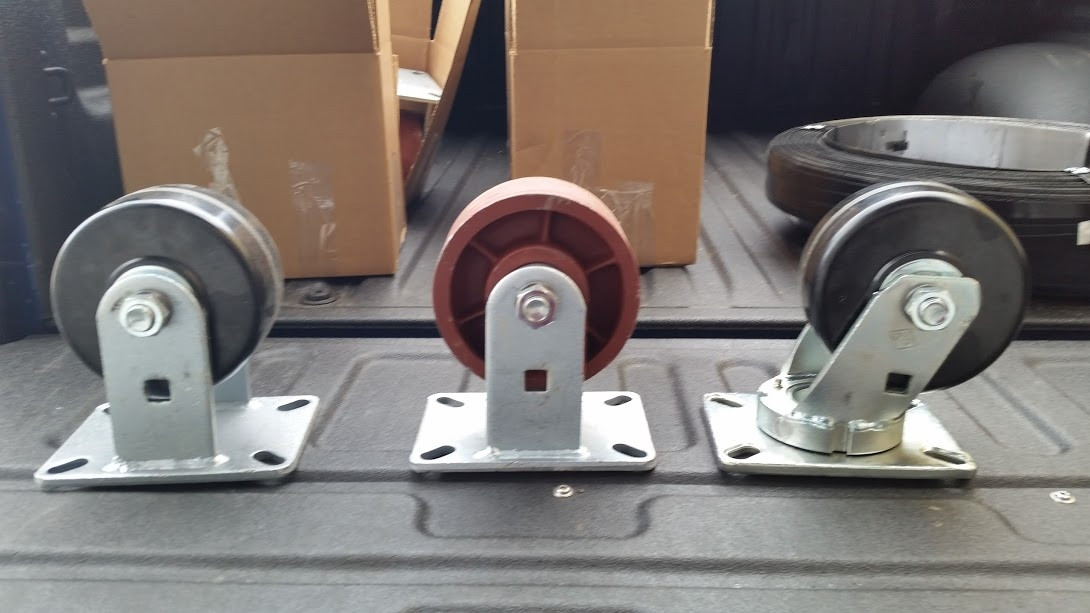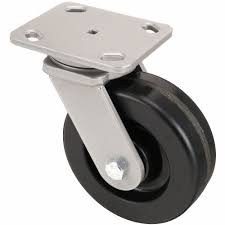
Choosing the right casters for your business means you can prevent costly mistakes. Casters may seem like a simple piece of equipment but they are made up of several components and each one needs to be considered so you can be certain you are choosing the right one for your company.
You may want to consider the size of the wheel, the swivel radius, and the expected load weight. Use the following guide before deciding on what caster to purchase:
Wheel Diameter
It is a known fact that larger wheels roll more easily. If you require one you can use with ease, then larger wheels are a better option. However, bear in mind that if a wheel is too large, it can also increase the center of gravity of your load and there are more chances for it to tip over as a consequence.
Swivel Radius
Casters that are fixed and do not swivel are ideal for moving materials in straight lines while swivel casters are ideal for moving through tight turns and small spaces. If your business prefers casters that can swivel, then you have to take into consideration how much clearance is needed so you can get a 30-degree swivel with the mounted caster.
Load Capacity
It is important to note that each caster is designed to support a certain amount of load. If you exceed this amount, it can potentially result in damage and deterioration of the caster. Heavy duty casters are made for heavier loads or faster transportation speeds. Medium or light duty casters are best for dollies, hospital beds, food processing equipment, shopping carts, hand trucks, bakery racks, conveyors, electronics and laboratory equipment. They can usually carry loads up to 400 - 500 lbs.
Rollability
Choosing the right bearing for your caster can help determine how well it rolls during application. These are the three types of bearings used for casters:
1. Delrin bearing - which is ideal for a wet environment.
2. Roller bearing - which is best for keeping dirt and debris out.
3. Sealed precision ball bearing - requires low maintenance and good for noise reduction.
Brakes
The two main braking options are friction brakes and locks. Friction brakes are better choices if you need more control over the speed of the load. Locks, on the other hand, will prevent your load from moving when unsupervised.
Safety
While considering how a caster can help improve productivity is important, knowing how safe it is for the person using it should be the top priority. Make sure you are purchasing quality casters. Remember that a bad caster can be a risk when moving heavy loads, especially if the caster is too stiff or does not swivel properly.
Always check customer reviews to help you determine how safe a caster is before buying it.
Mounting
When mounting a caster, you can opt for top plates or press threads. Top plates are attached to the trolley or cart surface using a bolt. Press threads are attached through an insert.
Finding a reliable heavy duty caster supplier is as important as considering the components and its purpose. Carolina Material Handling is a supplier that is knowledgeable and can guide you in choosing the right one according to your requirements.



